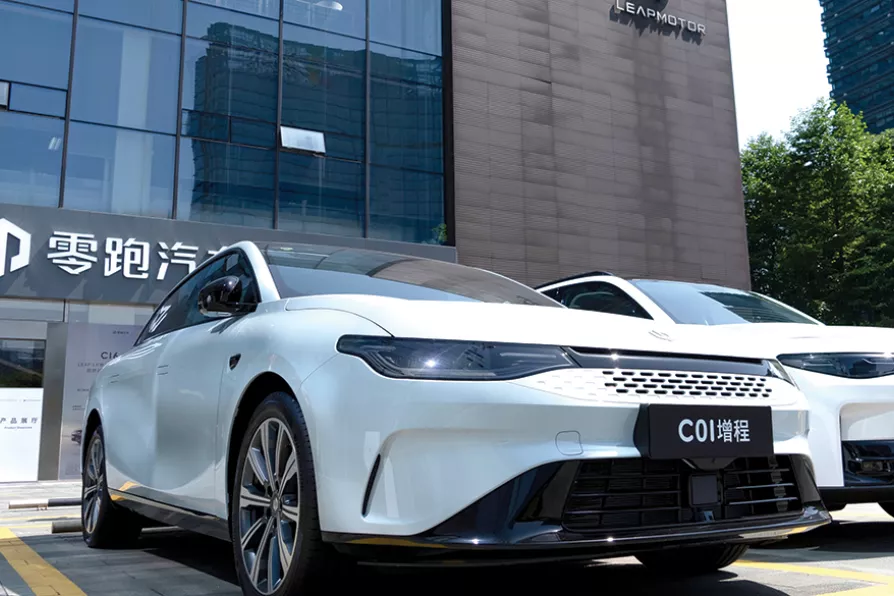ANSELM ELDERGILL draws attention to a legal case on Tuesday in which a human rights group is challenging the government’s decision to allow the sale of weapons used against Palestinians
Can Europe reject a trade war detour against China?
As Biden ramps up punitive tariffs to protect an ailing corporate supremacy, the EU faces a crucial choice — stay chained to a crumbling US empire, or navigate constructive economic ties with China itself, writes MARC VANDEPITTE

 THE SHAPE OF THINGS TO COME: Leapmotor EVs are parked outside a showroom in Hangzhou in Zhejiang province, eastern China, last week. European carmaker Stellantis announced it had formed a joint venture with Leapmotor that will begin selling EVs in nine European countries later this year
THE SHAPE OF THINGS TO COME: Leapmotor EVs are parked outside a showroom in Hangzhou in Zhejiang province, eastern China, last week. European carmaker Stellantis announced it had formed a joint venture with Leapmotor that will begin selling EVs in nine European countries later this year
THE US economic war against China has been going on for some time. It began under Trump and was continued zealously under Biden.
It ranges from import tariffs on Chinese machinery, electronics, steel, aluminium and auto parts, among others, to restrictions on technology transfers of semiconductors, artificial intelligence, telecommunications and 5G networks, space and satellite technology, robotics and advanced manufacturing technology.
Several Chinese companies are on blacklists, preventing US companies from trading with them. This also applies to investments in certain Chinese sectors such as technology, telecom and infrastructure.
Similar stories

New tariffs on Chinese electric cars protect European capitalists at European consumers’ and workers’ expense, writes BHABANI SHANKAR NAYAK, showing a continuation of neocolonial trade practices

Brussels is following the US’s lead in slapping punitive duties on China’s electric vehicles, sabotaging Europe’s climate goals and economic interests to appease Biden’s anti-Beijing crusade, writes CARLOS MARTINEZ

Brussels is following the US’s lead in slapping punitive duties on China’s electric vehicles, sabotaging Europe’s climate goals and economic interests to appease Biden’s anti-Beijing crusade, writes CARLOS MARTINEZ










